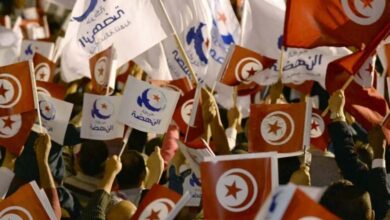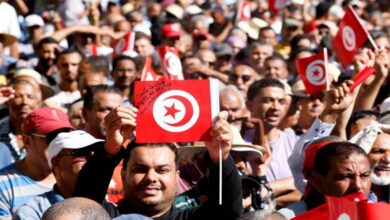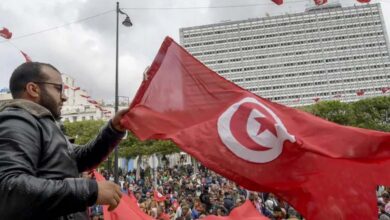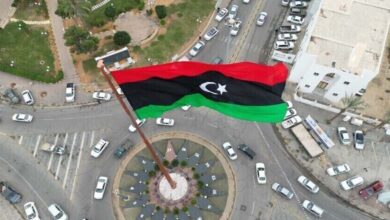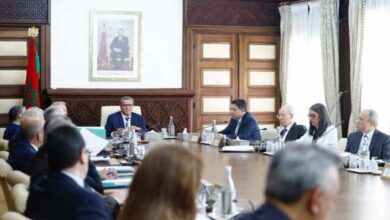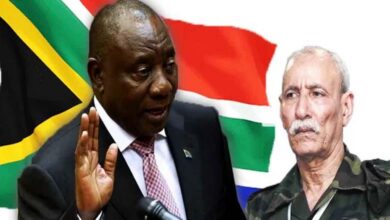Kais Saied in the field – 2022 the way to Tunisia’s salvation from the Muslim Brotherhood
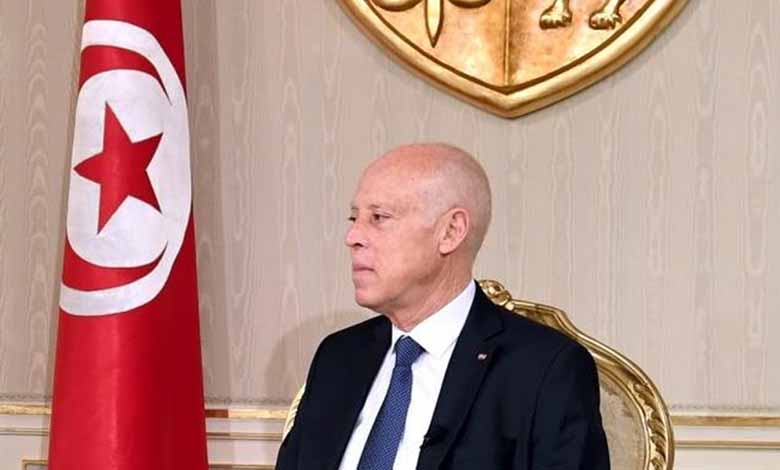
The year 2022 was an arena for the struggle of Tunisian President Kais Saied and the Muslim Brotherhood terrorist group in an attempt to liberate the country after the “black decade of the organization.”
In decisions that affected the Tunisian street, Saied decided to amputate the Muslim Brotherhood’s arm in the trinity of power by freezing the work of parliament before it is officially dissolved.
In 2022, Saied launched a new phase with the launch of a comprehensive national dialog that produced a new draft constitution that passed successfully in a popular referendum, cutting short the Brotherhood’s 2014 constitution.
In a series of measures, Saied succeeded in holding early elections in the middle of this month to form a new parliament for the country that will lead the march for democracy that the Brotherhood sought to unify after they reached its corridors.
Dissolving the Brotherhood Parliament
On March 30, more than 120 Tunisian MPs from the Muslim Brotherhood parties and their allies held a virtual meeting in defiance of the president, who suspended the head of government on July 25, 2021. The 116 MPs voted “yes” and “no objection or reservation” to a bill abolishing the exceptional measures taken by the president.
In the wake of the move, widely seen as a signal to begin driving the country into “sedition,” President Saied ordered the dissolution of parliament.
Saied dissolved parliament while chairing a meeting of the National Security Council. While criticizing the meeting of deputies, the Tunisian president said it was a failed coup attempt, a conspiracy against the internal and external security of the state, and that they will be punished.
Ghannouchi’s decision to hold the parliamentary sessions was an announcement of an outright rebellion by the Brotherhood against the laws of the state, and he was brought to court on March 30th on charges of “conspiring against the security of Tunisia and forming a criminal pact.”
National Dialog without the Brotherhood
The dialog, initiated by Saied on June 5 and organized by the National Consultative Authority for a New Republic, headed by Tunisian law professor Sadiq Belaid, kicked off in preparation for a referendum on a new constitution on July 25, 2022, aimed at ending the country’s political crisis.
The body was tasked with “preparing a constitution that responds to the aspirations of the people and ensures the principles of justice and freedom in a true democratic system.”
The national dialog excluded some of the political parties that had harmed the country, led by the Brotherhood.
Kais Saied only involved the country’s major national organizations and political parties in support of the July 25, 2021 measures.
During the national dialog, proposals and visions regarding the national economy were presented for the next 40 years.
Passage of a new constitution
On July 25, 2022, Tunisians voted in a referendum on a new constitution, in which President Kais Saied put an end to the Muslim Brotherhood, which is classified as a terrorist organization.
The new constitution restores power to the presidency after it was in the hands of the parliament, which has come under the control of the Muslim Brotherhood’s Ennahdha party, the largest bloc since 2011.
When casting his vote, Saied hailed the referendum as the basis for a new Tunisian republic.
The vote was held to mark the one-year anniversary of Saied’s special measures, which dissolved the elected parliament, ousted the government and imposed a state of emergency in anticipation of the group’s violence.
“We will establish a republic different from the previous black years,” Saied said after casting his vote in the referendum. We want to establish a state based on the law,” he said, pledging to protect freedoms.
The new constitution represented a positive turning point in the reform process that Saied began in the middle of last year, completing his work with a referendum on a new constitution to govern the affairs of the state and lift its people out of distress.
Popular Word for the Brotherhood
For a year, the Ennahdha Brotherhood failed to mobilize the Tunisian street against Kais Saied’s reformist trajectory, which pushed them out of government.
The Muslim Brotherhood wagered from the outset to promote President Saied’s “coup” against the constitution in order to turn international public opinion against him. The Brotherhood failed to do so, as international powers did not oppose the Tunisian president’s move, while some merely demanded setting a time limit for his actions.
After being pronounced by the Tunisian people, the Brothers in Tunisia found nothing but affiliation in the arms of outside powers to pressure President Kais Saied to return to power.
President Kais Saied has repeatedly talked about attempts at belonging to foreign powers, and he warned against treachery and bullying abroad and harming national sovereignty, which he asserted belongs solely to the Tunisian people.
Defeating the Brotherhood
Political analyst and activist Naguib al-Barhoumi said this year was enough to defeat what remained of the Brotherhood, especially after the bombing of the Brotherhood’s Ennahdha party from inside Tunisia, which led to resignations and the loss of popularity.
He confirmed that with the fall of the Renaissance Movement in Tunisia, the last vestiges of the international organization of the Muslim Brotherhood in the Arab region had collapsed, pointing out that all the attempts of the Brotherhood to return to power disappeared after Kais Saied approved a new constitution, cutting off with the constitution of the Brotherhood, and holding parliamentary elections without their participation.
The adoption of the new constitution ushers in a new political era without the Muslim Brotherhood, which is classified on terrorism lists, he said, especially after their long bloody history and the killing, bloodshed, assassinations and terrorism they caused in Tunisia.
Tunisian political analyst Hassan al-Tamimi said the new constitution approved by Kais Saied cuts short of all rights and freedoms, and puts a law in the form of the ambitions of the organization that exhausted the state and its people.
“Ennahdha has lost its popular support because of the number of false promises it has made since coming to power and its inability to implement them, as well as its failure to govern and to realize the minimum dreams of Tunisians who began regretting the pre-2011 era as well as its opportunism and arrival, he said.”
After Saturday’s parliamentary elections, Tunisia has entered a new phase, shaping a new political landscape away from the Brotherhood.
According to analysts, preliminary results reveal that the new parliament consists of three political forces, all of which confirm their support for the political process led by Tunisian President Kais Saied since July 25, 2021.





